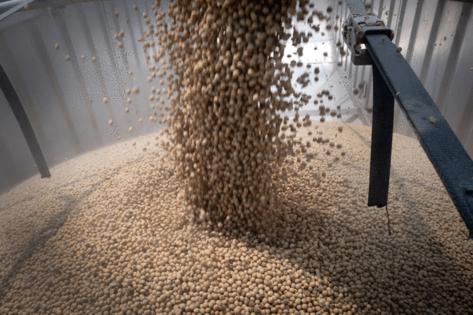Patricia Lopez: 'Farmageddon' can't be solved with a bailout alone
Published in Op Eds
It’s harvest time in the Midwest and farmers are bringing in bumper crops of soybeans, corn and wheat. They should be elated.
But their best customers are shopping elsewhere as a result of a global trade war ignited by President Donald Trump. Punishing tariffs have created what some are calling “Farmaggedon.”
China, once a top destination for American soybeans, has signaled its displeasure with Trump’s tariffs by locking out U.S. farmers in favor of more stable partners in Brazil and Argentina. Soybeans are this country’s largest agricultural export, valued at more than $24 billion in 2024, with about half usually going to China.
But China has made no purchases from this harvest, with disastrous results for American growers. Soybeans are piling up across the Midwest, spilling out of bins and grain elevators from North Dakota to Missouri.
And farmers are suffering a double whammy because the costs of the inputs needed to grow those soybeans — fertilizer, seeds, potash, equipment — are rising, also because of tariffs. Much of the potash used by Midwestern farmers comes from Canada. Parts for farm equipment often originate in China or other Asian countries.
“It’s a big concern that farmers are producing a crop that (is) going to cost more to make than it is the revenue that they’d receive,” Ohio Soybean Association Executive Director Kirk Merritt said recently.
One could argue that farmers should have seen this coming. Trump has long telegraphed his belief that tariffs are the Swiss Army knife of economic tools, creating new jobs, pushing enemies, rewarding allies, and useful as leverage for pushing whatever policy he favors. And, of course, generating billions in new government revenue.
But that revenue, which Trump says he now may tap for a farmer bailout, is no windfall paid by foreign countries. Farmers know all too well it comes from U.S. companies and consumers as a hidden, regressive tax that chips away at their margins. If the proposed bailout feels a little like he’s paying them back with their own money, it’s because he is.
We’ve seen a version of this play out before. When farm profits started to nosedive in 2018, after Trump’s first round of tariffs, the president ordered $28 billion in bailouts to farmers over the course of his first term. When the pandemic hit, he sent yet more money to farmers, boosting agriculture payouts to unsustainable levels. Farmers responded by supporting Trump heavily in 2024, just as they had in previous elections.
Now reality is once again refusing to bend to Trump’s will, differing sharply with the enticing carnival pitch he rolled out to supporters. The answer for Trump is another bailout. He’s been discussing a possible $10 billion package for weeks, but no details have emerged.
There are two problems with that. One, bailouts are a temporary patch. Farmers want to sell their products, not depend on government handouts. Christopher Barrett, an economics and public policy professor at Cornell University, noted in April that government bailouts “rarely match up well with farmers’ actual losses,” and are an added burden on taxpayers.
And second, Trump’s 2018 tariffs altered trade patterns, setting in motion long-term shifts and eroding U.S. market share. A decade ago, U.S. soybean growers were the top exporters in the world and China was their top customer. Then came Trump’s election and his subsequent trade war. Soybean farmers got caught in the crossfire. Brazil seized a potential opening to expand its sales to China at competitive prices. A decade later, Brazil has displaced the U.S. as the world’s top exporter of soybeans, thanks in large part to Chinese sales that previously had gone to American growers.
This time around, Trump has given a boost to another competitor, Argentina, where far-right President Javier Milei is floundering. Trump, who favors Milei, has pledged a $20 billion economic rescue package, even as American farmers wait for details of their own bailout.
Adding insult to injury, Argentina has suspended its export tax and was rewarded with Chinese orders last month for 20 shiploads of soybeans, deepening a market downturn for American growers.
“The frustration is overwhelming,” American Soybean Association President Caleb Ragland said in a statement. “U.S. soybean prices are falling, harvest is underway, and farmers read headlines not about securing a trade agreement with China, but that the U.S. is extending $20 billion in economic support to Argentina.” Ragland then called on Trump to “prioritize securing an immediate deal on soybeans with China.”
Republican Iowa Senator Chuck Grassley asked in a recent social media post, “Why would USA help bail out Argentina while they take American soybean producers’ biggest market???”
Why indeed.
And the damage goes beyond tariffs. Trump’s dismantling of USAID and cuts to SNAP, the nutritional program for the poor, have also hit two major outlets for American farmers’ goods.
Farmers have been among Trump’s most devoted supporters. In the last election, out of 444 farm-dominant counties, Trump won all but 11. He proclaims himself to be the “best friend” farmers have ever had. It’s getting harder and harder for farmers to see it.
_____
_____
©2025 Bloomberg L.P. Visit bloomberg.com/opinion. Distributed by Tribune Content Agency, LLC.
























































Comments